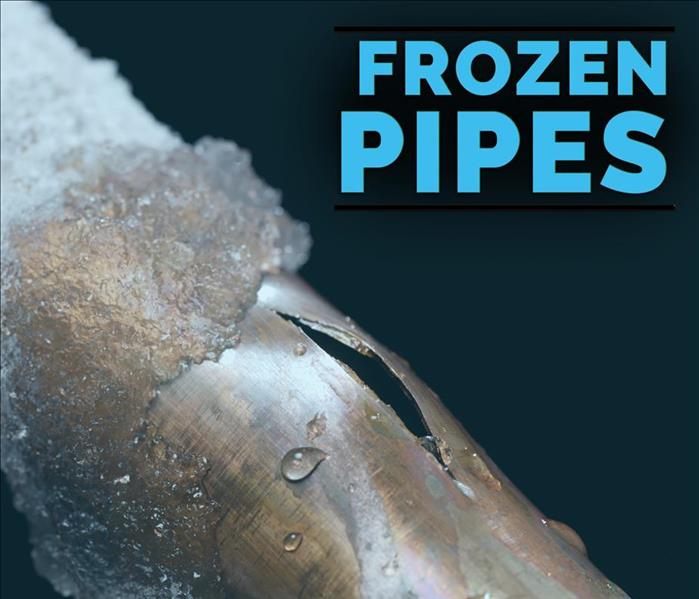How Frozen Pipes Create Water Damage In Your Business
1/31/2020 (Permalink)
 Your business is vulnerable to not just obvious winter hazards, but also water damage caused by frozen pipes
Your business is vulnerable to not just obvious winter hazards, but also water damage caused by frozen pipes
The winter season brings many obstacles and hazards to your business, from slippery ice to heavy snow accumulation. A more unexpected danger involves water damage caused by pipes bursting and leaking their contents. These pipes usually break because they freeze after exposure to cold temperatures. Continue reading to learn more about what happens after pipes freeze, how to handle damage and preventing future frozen pipes.
Consequences of Frozen Pipes
When the water inside pipes freezes and expands, it creates high pressure that tries to escape in all directions. The pressure is strong enough to damage the pipes as it leaves. The frozen water can later melt and leak from the broken pipes to the rest of the Cheltenham, PA, building. This high amount of water can damage your property, slow down productivity and drive away clients. Ultimately, you will have to deal with the costs caused by frozen pipes.
Dealing With Damage from Burst Pipes
Once you detect the signs of water damage, such as weakened structures and mold stains, it is time to take action. Follow these steps to minimize the impact and save your establishment.
Observe the affected area and disable any potential hazards, if possible
Turn off the main water valve and turn on faucets to drain remaining water
Place buckets and containers to collect leaking water
Contact a plumber for repairs and an emergency remediation company for water cleanup
Fast action and preparation can mitigate damage and save money. Keep a contact list of important services at hand.
Preventing Frozen Pipes
The best way to handle winter damage is by preventing it. There are several measures you can enact to keep the pipes from freezing. Have your building inspected for openings that can leak cold air and seal them. During the warmer seasons, insulate the pipes to prevent exposure to freezing temperatures. Finally, let your faucets drip warm water to prevent internal freezing.
Your business is vulnerable to not just obvious winter hazards, but also water damage caused by frozen pipes. You can reduce this loss and even prevent it by learning more about it.





 24/7 Emergency Service
24/7 Emergency Service